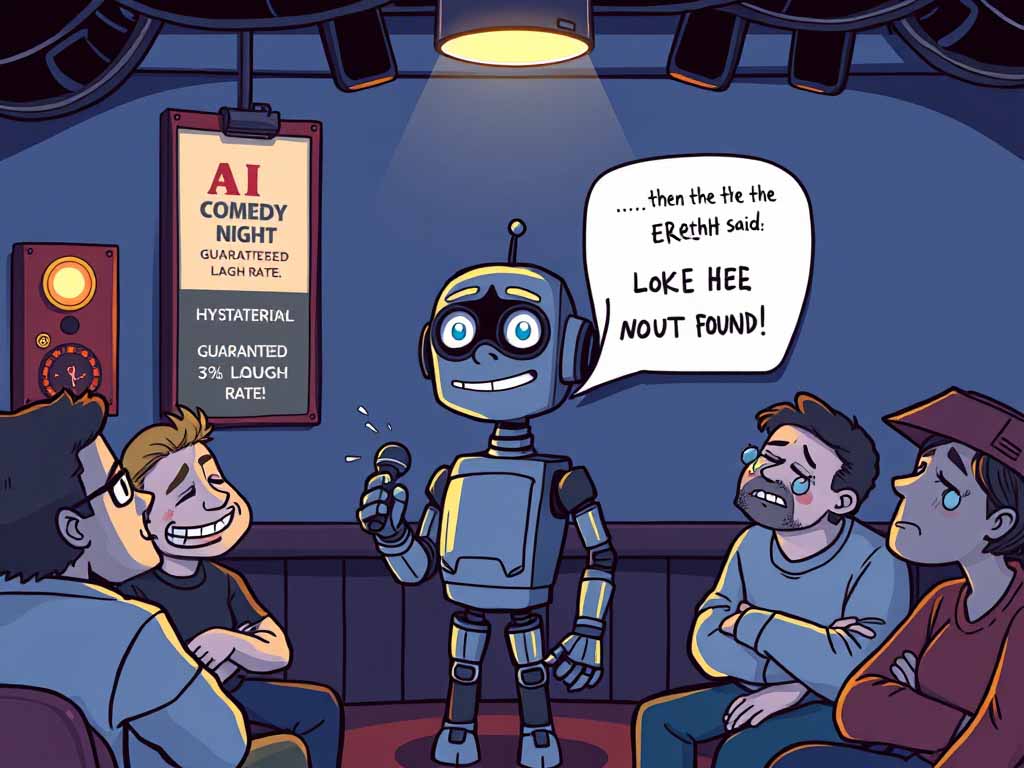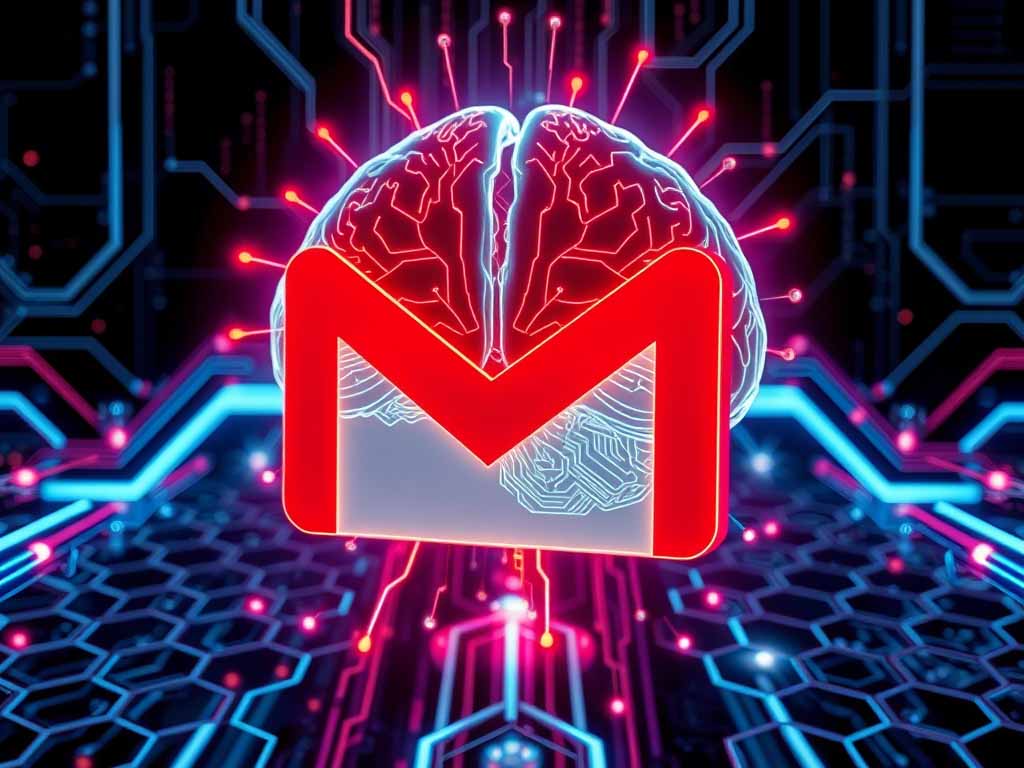Have you ever imagined a robot telling jokes? Not just any robot, but a full-on comedian on stage with a microphone, delivering punchlines and reading the room. Sounds like something out of a sci-fi movie, right? But here we are, in 2025, and AI-generated stand-up comedy is starting to take shape. But the real question is: Can these machines actually make us laugh? Can they make us laugh like humans do?
It’s a fun thought experiment, but it’s also something that’s becoming real. The idea of AI taking over comedy brings out a lot of mixed feelings — after all, humor is such a deeply human thing. It’s emotional, raw, and unpredictable. So, can a machine really understand what makes us tick? Can it capture the essence of humor in the same way that a comedian who’s poured their heart into every joke can?
Let’s dive into what AI comedy is all about and figure out whether these machines will ever have the same comedic timing as a human.
How AI Got Into Comedy
Before we ask if AI can make us laugh, let’s talk about how it even got into comedy in the first place. The idea isn’t as crazy as it sounds. AI has already been making waves in other creative areas like music and writing. So why not comedy?
AI works by analyzing patterns. It looks at language, structure, timing, and even audience reactions. Once trained, AI can craft jokes, setup-punchline sequences, and even entire routines based on vast amounts of data from things like movies, TV shows, and, yes, the internet.
At first, it was pretty basic stuff. Think of a cheesy dad joke, like: “Why don’t skeletons fight each other? They don’t have the guts.” Cute, but not groundbreaking. But as AI has evolved, it’s started to produce more complex, structured jokes. Suddenly, AI was spitting out punchlines that were, well, kind of clever.
But does that mean it’s funny?
Why AI Can Actually Be Funny (In Its Own Way)
Okay, let’s give credit where credit is due: AI does have some things going for it when it comes to comedy. Here are a few reasons why an AI comedian might actually crack a smile or two.
1. Endless Content, Zero Writer’s Block
Let’s be honest: writing jokes isn’t always easy. There are days when you’re just not feeling it. Writers, comedians, and anyone who has to come up with new ideas can hit a wall. But AI? It doesn’t get writer’s block. It doesn’t get tired, frustrated, or need a break.
If you asked an AI to come up with 50 jokes about any topic — whether it’s animals, politics, or the latest pop culture trend — it can do that in seconds. And each joke is slightly different, with fresh takes. No limits. No shortage. It just keeps going. For someone who’s scrambling to create content, this could be a game-changer.
2. A Joke for Everyone
One of the coolest things about AI is that it doesn’t have a single point of view. It’s trained on data from all over the world, which means it can pull from an incredible variety of sources — everything from classic humor to niche internet jokes. If one group doesn’t like a certain style of humor, AI can try a completely different approach.
Need jokes for kids? It’s got that. Need dark humor? It’s there too. Want something quirky and surreal? No problem. AI doesn’t get stuck in one genre; it can adapt to your audience instantly.
3. No Fear of Bombing
Anyone who’s ever done stand-up knows that feeling of the joke landing flat. That awkward silence. The pressure. But AI doesn’t know that feeling. It doesn’t care if it bombs.
If a joke doesn’t work, AI just moves on to the next one. It doesn’t worry about being judged or how its audience reacts. There’s no self-doubt, no moment of panic. It’s an interesting advantage — for better or worse — because it keeps churning out jokes no matter what. The fear of failure doesn’t exist for AI.
Why Humans Will Always Have the Upper Hand
So far, it seems like AI is a pretty solid comedian, right? But before we start booking an AI for our next comedy night, let’s talk about why AI can’t replace human comedians.
1. Comedy Is About Connection
At its core, comedy is about connection. It’s about making people feel like they’re not alone in the world. A great comedian taps into the collective experience of the audience. They can speak about life’s struggles, joys, and absurdities in a way that makes the crowd feel understood.
An AI, on the other hand, can mimic these patterns, but it doesn’t have lived experience. It doesn’t have personal stories or an authentic emotional connection to what it’s saying. AI might tell a joke about being stuck in traffic, but it’s not because it’s ever been late for a show. It doesn’t know the frustration of being late, or the joy of finally getting a seat at a comedy club.
Real humor often comes from those personal experiences — the messy, funny moments that make us human.
2. Improv: The Heart of Comedy
Comedy isn’t just about prepared jokes. It’s about improvisation. Great comedians can read a room, adapt on the fly, and turn a spontaneous moment into a goldmine of humor. Maybe the audience member says something funny, or something unexpected happens in the room. A human comedian can adapt, using their instincts and wit to weave that moment into their routine.
AI doesn’t have that. It can analyze patterns and predict responses, but it can’t react to live, unpredictable situations. It can’t pick up on subtle shifts in mood or timing. It’s working off data, but it doesn’t have the intuition that a human comedian does.
3. The Soul of Comedy: Emotions and Vulnerability
A lot of the best comedy comes from a place of vulnerability. A comedian might share a deeply personal story — about a heartbreak, a family moment, or a failure — and turn it into something hilarious. That’s what makes us connect with them. We laugh because we relate, because we know the feeling behind the joke.
AI can write jokes, but it can’t feel those emotions. It doesn’t know the sting of rejection, the joy of a first kiss, or the chaos of trying to manage life’s curveballs. It can replicate patterns, but it can’t live through them. And that’s what makes human comedy so special.
Can AI and Humans Collaborate?
AI doesn’t have to be a competitor to human comedians. In fact, the future of comedy might involve collaboration between the two. Some comedians are already using AI as a tool to enhance their routines — maybe to come up with new punchlines, or to brainstorm unusual setups.
Imagine a comedian on stage, working through their material, and then AI chimes in with a funny twist on the joke. It could add an unexpected layer to the routine, something new, something surprising. The possibilities are endless.
In this way, AI might not replace the comedian; it could become their creative partner.
Final Thoughts: AI Might Be Funny, But Humans Will Always Rule Comedy
So, can AI make you laugh more than a human comedian? The answer is clear: probably not. While AI can certainly produce jokes and make us chuckle, it lacks the essential things that make humor truly resonate: connection, emotion, and spontaneity.
That doesn’t mean AI doesn’t have a place in the comedy world. It might be the perfect tool for idea generation or even to inject some unexpected surprises into a routine. But when it comes down to the magic of stand-up — the moments of vulnerability, the improvisation, and the human connection — nothing beats a real, live comedian.
In the end, AI might have its moment in the spotlight, but human comedians will always have the upper hand in making us laugh with their real, raw, and unpredictable performances.



